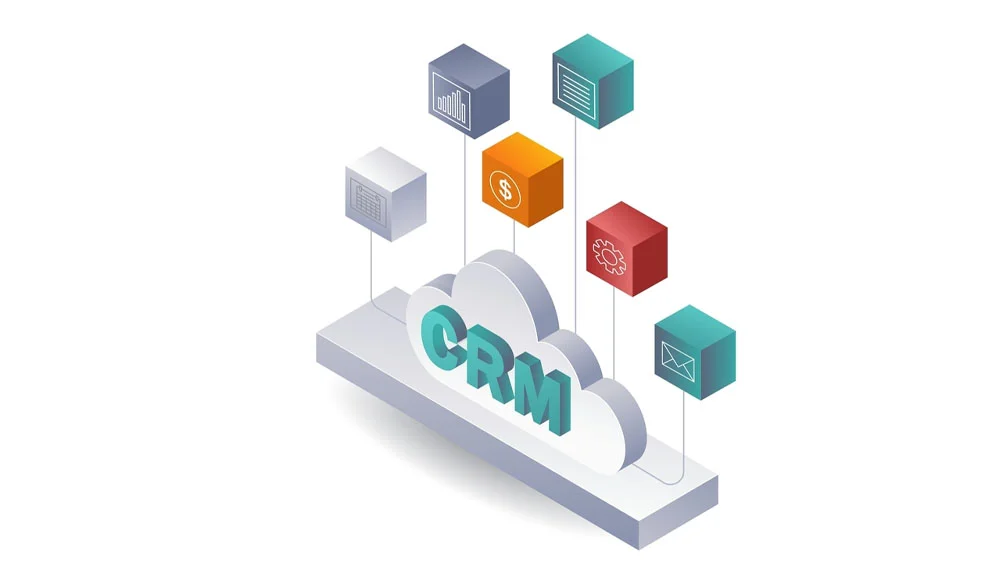Running a business is no small feat that is why you need to know how to streamline business operations. Every day, you’re pulled in multiple directions—managing employees, balancing finances, and keeping customers happy. It can feel overwhelming. But here’s the good news: technology can help lighten that load.
Those time-consuming, repetitive tasks can be automated, freeing up your time to focus on what truly drives your business forward. With the right tools, you can boost communication, streamline operations, and make smarter decisions with real-time data.
This article will explore how technology can streamline your business operations. By the end, you will understand the tools you need to improve your business’s bottom line.
1. Streamline Business Operations: Enhance Communication with Collaboration Tools
Effective communication is the backbone of any successful business. Modern collaboration tools like Clariti, Slack, Microsoft Teams, or Zoom streamline internal team communications. For customer-facing interactions, integrating AI voice assistance can enhance your operations by handling incoming calls, answering common queries, and routing calls to the right team members. This ensures that your team can focus on priority tasks while maintaining high-quality customer service.
These tools improve internal communication and enhance interactions with clients. For example, integrating tools like Salesforce for SME into your business can centralize customer communications. They ensure that your sales team can quickly access all relevant information when needed. This seamless communication ultimately leads to faster decision-making and improved customer satisfaction.
These tools improve internal communication and enhance interactions with clients. For example, integrating tools like Salesforce for SME into your business can centralize customer communications. They ensure that your sales team can quickly access all relevant information when needed. This seamless communication ultimately leads to faster decision-making and improved customer satisfaction.
2. Automate Sales Processes with CRM Systems

Customer Relationship Management (CRM) systems like Salesforce are critical in automating sales processes, from lead generation to closing deals. These systems help track customer interactions, manage sales pipelines, and automate routine tasks. They free up your sales team to focus on high-value activities.
Using Salesforce for small business pricing can help you tailor your CRM to fit your budget while still enjoying the robust features that Salesforce offers.
Automation in sales processes reduces the potential for human error, ensures consistency in follow-ups, and provides valuable insights through data analytics. This helps your team prioritize leads effectively and close deals faster, ultimately driving revenue growth and improving operational efficiency.
3. Streamline Business Operations: Boost Productivity with Project Management Tools
Project management tools like Asana, Trello, or Monday.com have become indispensable for teams looking to enhance productivity and streamline operations. These tools centralize project information, assign tasks, and track progress, ensuring that everyone involved understands their responsibilities and deadlines.
These platforms help teams avoid bottlenecks and ensure project completion on time by visualizing workflows and automating routine project updates. Additionally, integrating these tools with Muncly allows for seamless task management and coordination, even when team members work remotely or across different time zones.
4. Improve Customer Acquisition with Data Analytics
Data analytics is a powerful tool that can transform how you acquire customers by providing insights into customer behavior, market trends, and campaign performance. Businesses can identify the most effective strategies and channels for reaching potential customers by analyzing data from various touchpoints.
For B2B companies, developing a customer acquisition strategy for B2B involves leveraging these insights to target the right audience with tailored messaging and offers. This data-driven approach improves the efficiency of your marketing efforts and enhances your ability to convert leads into loyal customers.
5. Optimize Inventory Management with Inventory Management Software
Efficient inventory management is crucial for maintaining healthy cash flow and meeting customer demand. Technology solutions like QuickBooks or Zoho Inventory provide real-time visibility into your inventory levels. They help you avoid stockouts and reduce carrying costs. These tools also support better demand forecasting, allowing you to make informed purchasing decisions and optimize your supply chain.
By integrating inventory management software with other business systems, you can ensure that your inventory data is always accurate and up-to-date. This reduces the risk of errors and improves overall operational efficiency.
6. Streamline Business Operations: Strengthen Cybersecurity with Advanced Protection Tools
Today, protecting your business from cyber threats is crucial. Implementing advanced cybersecurity measures like firewalls, encryption, and regular security audits can safeguard your data and ensure uninterrupted operations. These tools help detect and prevent unauthorized access, data breaches, and other cyber threats, which can otherwise lead to significant financial losses and damage to your reputation.
Integrating these cybersecurity solutions or setting up a hosting with SSL security through GovDocFiling’s GoDaddy web solution, with your existing systems protects sensitive customer information, building trust and confidence with your clients. Cybersecurity is a protective measure and an essential part of maintaining smooth, secure, and efficient business operations. It allows you to focus on growth without the constant worry of potential threats.
7. Resource Allocation Optimization With ERP Systems
Technology can significantly enhance how businesses allocate resources, ensuring that manpower, budgets, and technology are directed toward the most impactful areas.
Tools like Enterprise Resource Planning (ERP) systems can analyze and optimize resource usage, leading to better strategic decisions and improved efficiency. This streamlined approach helps businesses stay competitive by focusing on high-impact activities and reducing resource wastage.
8. Helps in Business Process Optimization
Optimizing business processes involves rethinking and redesigning workflows to eliminate unnecessary steps and enhance efficiency. Techniques like Lean Six Sigma and Business Process Reengineering (BPR) can help identify bottlenecks, standardize processes, and automate repetitive tasks. To further streamline your business operations, integratingadvanced route optimization tools can be a game-changer for your logistics. These tools analyze various factors, such as traffic patterns and delivery schedules, to optimize your delivery routes. This means you can reduce fuel costs, minimize delivery times, and enhance overall efficiency. By leveraging advanced route optimization, you’ll ensure that your logistics are as efficient and cost-effective as possible, freeing up valuable resources to focus on other critical aspects of your business.
By focusing on process optimization, businesses can achieve significant productivity improvements, reduce costs, and maintain high quality and customer satisfaction levels.
9. Streamline Business Operations: Aids Data-Driven Decision-Making With Data Analytic Tools
Implementing data analytics tools can transform your decision-making process. Businesses can gain insights into operations, customer behavior, and market trends by collecting and analyzing data.
This data-driven approach allows for more accurate forecasting, better customer targeting, and improved operational efficiency. Tools like Tableau or Microsoft Power BI enable businesses to visualize data. They help to identify inefficiencies and make informed decisions to streamline operations.
Final Thoughts
Streamlining your business operations with the right technology can substantially improve efficiency, productivity, and profitability. By leveraging tools for resource allocation, data-driven decision-making, and business process optimization, you can reduce costs, eliminate inefficiencies, and maintain a competitive edge in your industry.
As technology evolves, integrating these solutions into your operations will help your business adapt to changing market conditions, meet customer demands, and achieve long-term success. Embracing these strategies ensures that your business is efficient today and prepared for future challenges.




